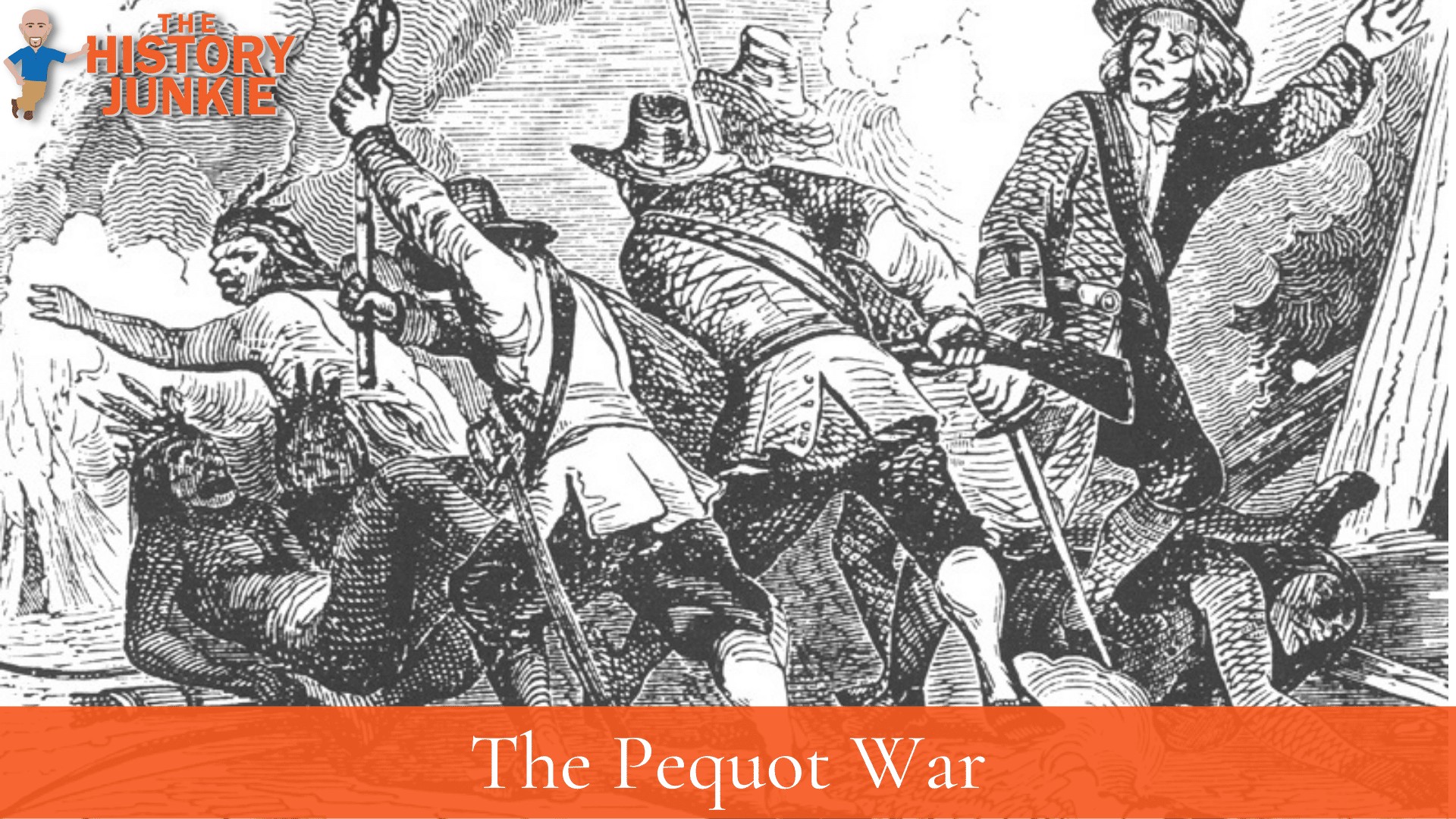Indian Wars refer to the Native American conflicts with the Europeans and Americans throughout the Age of Exploration, Colonial America, American Independence, and throughout the 19th and early 20th centuries.
The Native Americans were at a distinct disadvantage to the Europeans when they arrived as they were susceptible to European diseases, especially smallpox, had inferior weapons and tactics, were fragmented, and lacked domestic animals such as horses that were not native to the continent.
However, despite these disadvantages, they adapted. They eventually acquired horses, cattle, and other animals from Europe. They also traded and learned European weaponry and merged that with their own tactics. They would adapt and become a formidable foe to the growing United States. However, they were doomed by their lack of unity and ancient foes and could never ally against a common enemy.
16th Century Indian Wars
Battle of Mabila: This battle took place against the Mississippian Indians that thrived along the Mississippi River and the Spanish Conquistador Hernando de Soto in 1540. The natives fought bravely, but eventually, de Soto and his men took advantage when they set fire to the town. The Spanish killed most of the warriors, including Chief Tuskaloosa. The total number of casualties was said to be 2500 - 3000 Native Americans and 200 Spanish.
Tiguex War: This war took place between the Coronado Expedition and the Pueblo Indians. Francisco Coronado brought many men, slaves, and Indian Allies along with him. During the war, he attacked the Zuni and launched a devastating attack against the Tiwa people near the Rio Grande. Coronado and his men would eventually return to Mexico. Later, the conquistador Don Juan de Onate would return, and the Tiwa people rebuilt their losses.
17th Century Indian Wars
Anglo-Powhatan Wars (1610 - 1677): These consisted of three separate wars fought between colonists of Jamestown and the Virginia Colony, and the Powhatan Confederacy. The first war ended in 1614 with peace. The second war lasted from 1622 to 1626. The third war lasted from 1644 to 1646, when Opechanough was captured and killed. The last war would define borders that would last until Bacon's Rebellion and the Treaty of Middle Plantation. the treaty would establish Indian reservations.

Pequot War (1636 - 1638): This Indian War was against an alliance of New England Colonies that included Massachusetts Bay Colony and Plymouth Colony, and the Pequot Indian Tribe. The Pequots were one of the more powerful tribes in the area, and after the war, they were extinct, with the remaining Pequots being absorbed into other tribes.
Beaver Wars (1609 - 1709): The Beaver Wars were many different conflicts that took place throughout the 17th century and even into the early 18th century. The English colonists, the British Empire, and the Dutch Republic warred against the Iroquois Confederacy, other Northeastern Indian Tribes, and their French allies. There were various endings that occurred throughout the wars, but ultimately, it led to a stalemate that would not be resolved until the French and Indian War and the American Revolution.
Kieft's War (1643 - 1645): This was a conflict between the colony of New Netherland and the Lenape Indian Tribe that lived in New York. Willem Kieft was the Director-General of New Netherland and ordered an attack on the Lenape. This attack was not supported by his advisory council or the colonists. Despite not having any approval, the attack was carried out. The Lenape camps were attacked, and many of the inhabitants were massacred. The attacks resulted in the unification of the local Algonquian tribes against the Dutch, along with the removal of Willem Keft. Keft was replaced with Peter Stuyvesant, but the damage was done. Many Dutch settlers returned to the Netherlands, and the growth of the colony stalled.
The Peach Tree War (1655): The conflict was a decisive victory for the Susquehannock Indians when they defeated the colonists in New Netherland after the Dutch had taken New Sweden. After the conflict ended, Peter Stuyvesant repurchased the rights to settle in New Sweden.
King Philip's War (1675 - 1678): King Philip's War was a conflict between the New England Confederation and the Wampanoag, Wabanaki, and other Northeastern Indians. The Native Americans were led by Metacomet (known as King Philip), who would lose his life by the end of the conflict. The result was the New Englanders defeating the natives, but the Wabanaki took control of Maine.
King William's War (1688 - 1697): The conflict would be one of the first intercontinental conflicts between the French and the English, although somewhat indirectly. There had been border disputes since the end of King Philip's War as the colonists continued to encroach on the land of Maine. There would be little change to the border after the Treaty of Ryswick. However, some have said that the displacement of refugees would lead to the Salem Witch Trials.
